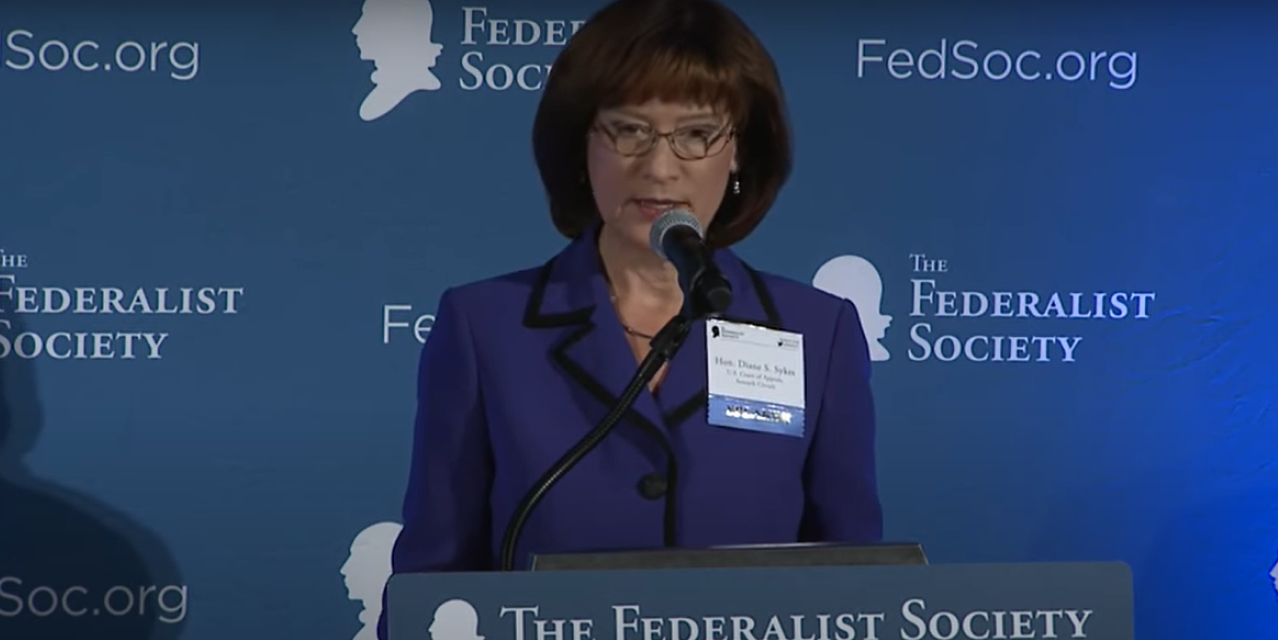CHICAGO - The presiding judge over Illinois' federal courts has declined, so far, to publicly state if she or others in a position of authority will take action to address standing orders issued by three federal judges in southern Illinois, which allegedly encourage discrimination against white male lawyers in their courtrooms.
In a letter addressed to U.S. Senators Ted Cruz, R-Texas, and John Kennedy, R-Louisiana, Judge Diane Sykes, who serves as chief judge of the U.S. Seventh Judicial Circuit, did not directly address the senators' demands to know what the court's leadership intended to do about the Southern Illinois District Court judges' alleged discriminatory orders.
"In our roles both as administrators of justice and as employer, we are committed to ensuring an environment free of discrimination," Sykes wrote in her letter, dated Feb. 16.

Nancy J. Rosenstengel
| law.siu.edu
The contents of the letter were first revealed in a report published by Bloomberg.
The senators had written to Sykes in the wake of the release of a complaint filed in the Seventh Circuit by the America First Legal Foundation against U.S. District Court judges Nancy Rosenstengel, Staci Yandle and David Dugan, all of whom preside over cases in the U.S. District Court for the Southern District of Illinois, based in the Metro East region, near St. Louis.
According to the complaint, the judges all entered orders in 2020, which give greater opportunities for career-advancing oral arguments in court to attorneys who are "newer, female and minority."
Under the orders, the judges adopted procedures that if an attorney who meets their desired demographics is expected to argue a motion, the judges would grant the request for oral argument, if the judge believes it is "practicable" to do so; strongly consider allocating additional time for oral argument to those specific demographics of attorneys; and permit other, more experienced attorneys on the case to help the newer, female and minority attorneys during oral argument.
According to the order, the judges said they understood there would be instances in which more experienced white male attorneys may still need to argue a motion and would "draw no inference" about the case or the arguments based on the decision not to send a newer, female or minority attorney to present the case in court.
In the complaint for judicial misconduct against the three judges, America First Legal Foundation's vice president and general counsel Gene Hamilton said the orders are illegally discriminatory and "erode public confidence in the judiciary."
“A reasonable observer would lose faith in the judiciary upon discovering that a court considers a lawyer’s sex or minority status when making important decisions about how cases are adjudicated,” Hamilton wrote. “A reasonable observer would also lose faith in the judiciary on learning that a judge would even contemplate asking about a litigant’s attorney’s sex or race. That’s because the only reason a judge needs to know a lawyer’s race or sex in the first place is to discriminate based on it.”
Hamilton argued that the alleged discrimination “incentivizes” second- and third-order discrimination, because law firms may consider sex and race when staffing cases and clients may discriminate when hiring lawyers.
“Even if race and sex preferences succeeded in creating opportunities for some without imposing inequalities on others, the judges’ policies would still be judicial misconduct because a reasonable observer would lose faith in the judiciary on learning that a judge believes members of certain races and sexes are more deserving of court time than members of other races and sexes,” Hamilton wrote in the complaint.
In a letter to Sykes following the release of America First Legal's complaint, Cruz and Kennedy, who each are ranking members on the U.S. Senate Judiciary Committee, called the orders and policy goals underlying them "both unethical and unconstitutional."
The Republican senators asked Sykes to respond to a series of questions, including:
- "How many oral arguments have been granted since these standing orders issued based on an attorney’s race, sex, or experience rather than the merits of the case?"
- "Chief Judge Rosenstengel’s standing order also reads 'The Court also recognizes that there may be many circumstances in which it is not appropriate for a newer, female, or minority attorney to argue a motion.' In what circumstances would it be even theoretically inappropriate for a female or minority attorney to argue a motion?"
- "What process is in place in the Seventh Circuit to evaluate facially discriminatory standing orders?" and
- "What specific measures has your Court implemented to promote an environment where individuals (that is, parties and lawyers) feel empowered to raise concerns about potentially discriminatory practices without fear of retribution?"
Sykes did not respond directly to any of those questions.
She further declined to comment on the judicial complaint against judges Rosenstengel, Yandle and Dugan, saying she "cannot," as such "materials related to judicial conduct ... proceedings are generally confidential."
The U.S. Seventh Judicial Circuit includes federal courts in Illinois, Indiana and Wisconsin.
The three federal district court judges declined to comment when the complaint was first made public.
Rosenstengel and Yandle were each appointed to the bench by former President Barack Obama. Dugan was appointed by former President Donald Trump.
